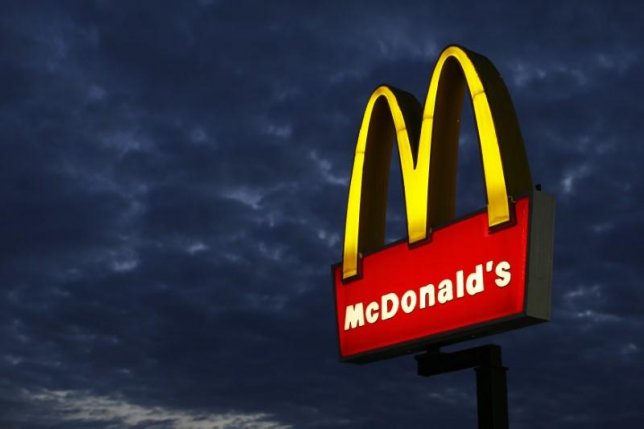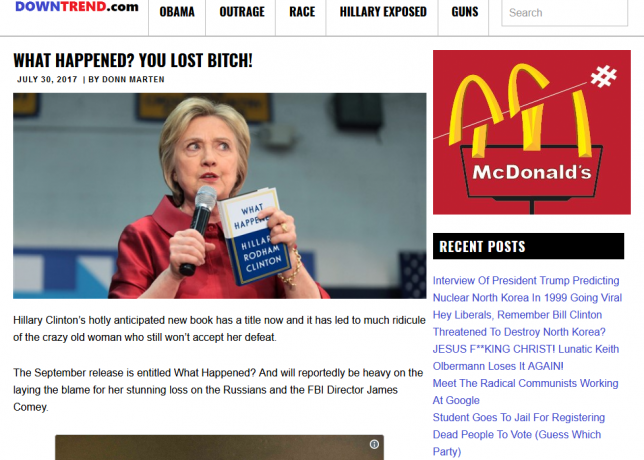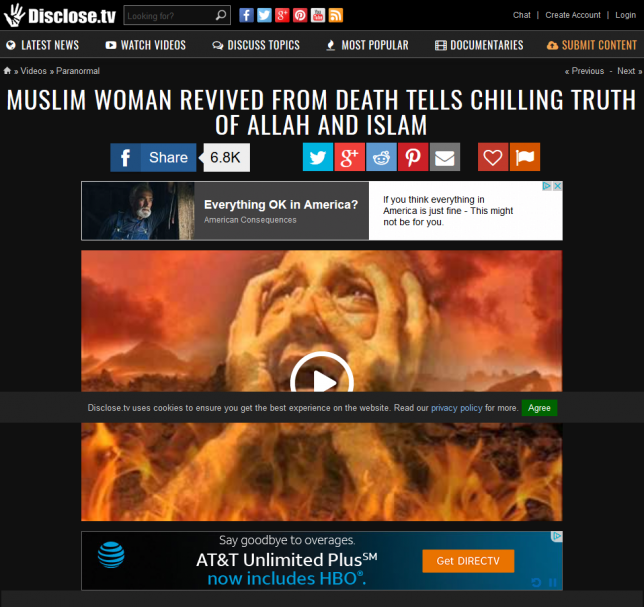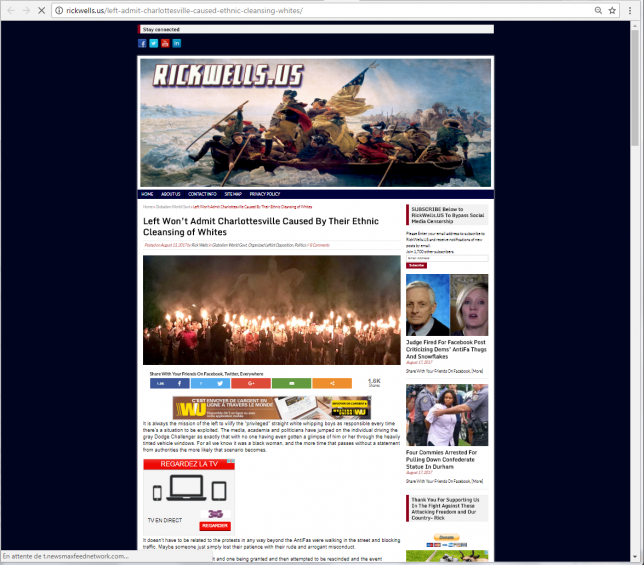
Despite civil rights groups and concerned individuals around the world standing up against racism and the hateful agenda of white supremacists, at least 450 brands can still be found on fake news sites promoting extremist movement. Some of these advertisers include a mobile network, banking company and fast food chain.
A recent report released by Storyzy, a fully automated fake news detector, reveals that brands are still allowing their ads to be shown on extremist web platforms, even after the Charlottesville protest. Recently, the content software company endeavoured to look for ads found in fake news websites that are radical in nature.
Of the 750 sites it categorised as fake news providers, Storyzy chief executive Stan Motte says they found 41 extremist sites between the period of 24 July and 18 August. In these 41 sites, 450 brands still have their ads on. In its parameters, extremist sites are those "explicitly spreading values like hate, racism, white supremacy, homophobia and defiance to mainstream media".
Also read: Fake news sites funded by over 400 brands in ads
Some of the impacted brands include both big and modest businesses from various sectors, such as banking, telecommunication, e-commerce, automobile, travel and health. Motte tells IBTimes Singapore of the sad reality that advertisers seem oblivious to what was happening during the Charlottesville protest that turned into a bloody riot.
"It looks as if nothing happened: ads are still displayed on these sites. Before and after Charlottesville, ads continue to appear", says Motte, adding "that the problem is far from being solved".
However, it has to be noted that these ads are shown programmatically, which means advertisers are not aware where their ads will exactly appear. Motte adds that retargeting may have also taken a part in the display of these ads; this system works by showing audience ads based on previous site visits.
"If you have visited an online shoe shop prior to visiting an extremist site, you'll probably see an ad of this online shop", explains Motte.
According to Storyzy, some brands are "fine" with their ads seen on extremist sites if they have just been retargeted, which for Motte is another problematic idea.
"This means they are also fine with the fact that they fund these sites", says Motte. "Often, they do not know that fraud could exist on retargeted ads".
Below are some screenshots of the said occurrence in six different countries.



Since November 2016, rights group Sleeping Giants reported at least 2,400 brands to have removed their ads from far-right American website Breitbart. According to Mark Irvine, senior data scientist at search marketing firm WordStream, Breitbart's ad revenue has plummeted by 51 per cent since November.









